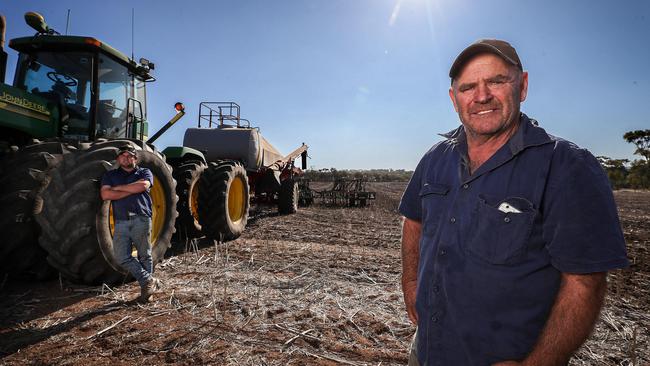Coronavirus: Gutted barley growers hurting in the crossfire
For WA farmer Barry Clarke, the news that China would put an 80 per cent tariff on Australian barley exports was ‘a kick in the guts’.

For third-generation West Australian farmer Barry Clarke, the news that China would go ahead with an 80 per cent tariff on Australian barley exports was “a kick in the guts”.
The confirmation of the tariff means Mr Clarke will have to cop an estimated $200,000 loss on the crop of barley growing in his fields. His counterparts across the state are now expected to lose a combined $200m this year as barley and wheat prices fall on the news. “The cost to the industry across the board, the lost revenue, is going to cripple a lot of farmers. There’s no rain in sight at the moment and it’s frustrating that all this goes on and on and on,” he told The Australian.
“What have we done wrong? Have we ever dumped barley? I don’t think so.”
Across the industry is a sense that barley growers have found themselves caught up in a much bigger situation.
China’s inquiry into Australia’s barley industry was announced when tensions between the two countries spiked due to issues such as Huawei and Chinese influence, and confirmation of the tariff followed a push by Australia for an inquiry into the origins of the coronavirus outbreak.
WA Agriculture Minister Alannah MacTiernan told The Australian the evidence she had seen suggested there was no basis for China’s claims that Australia’s barley industry had engaged in dumping or was propped up by subsidies. It was clear to her that “other matters” were at play.
With headlines emerging late on Tuesday that Australia’s wine and dairy industries could also be under China’s scrutiny, Ms MacTiernan said the situation showed WA needed to keep working to develop alternative markets for its exports.
“It’s become more and more difficult to avoid the fact that we are being sent a message and taught a lesson,” she said.
“It’s very disappointing if this is going to go further.”
Grains Industry Market Access Forum chief Tony Russell said the nature of the underlying complaints filed by China’s Ministry of Commerce less than two weeks ago made it clear that the tariff would be pushed through regardless of Australia’s response. “The basis of their findings was so flimsy that it was pretty clear that nothing was going to change that,” he said.
While Indonesia, India and Saudi Arabia have been touted as alternative destinations for Australia’s barley, those countries are more likely to purchase the product as feed for cattle, rather than as a premium malting product.
Farmers like Mr Clarke, meanwhile, are hoping that Australia’s politicians can find a way to “kiss and make up” with China.




To join the conversation, please log in. Don't have an account? Register
Join the conversation, you are commenting as Logout